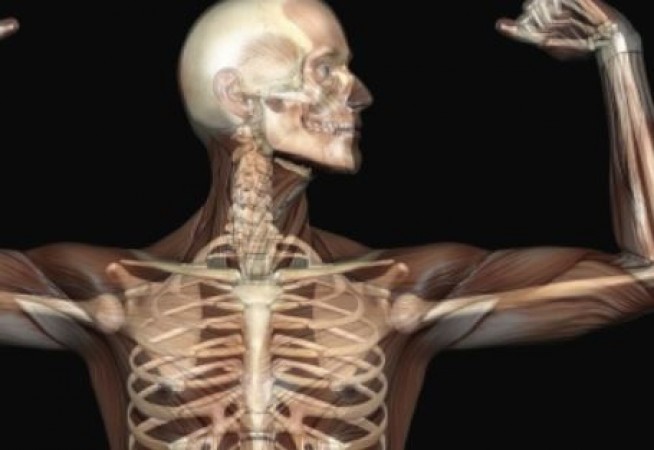
When it comes to maintaining strong and healthy bones, most people immediately think of calcium and vitamin D. And while these two nutrients indeed play a crucial role in bone health, there's a world of other essential vitamins and minerals that shouldn't be overlooked. Osteoporosis, a condition characterized by weakened and brittle bones, can be prevented and managed by ensuring you're not only getting enough calcium and vitamin D but also by incorporating these seven lesser-known nutrients into your diet. Let's delve into the powerhouse nutrients that go beyond the basics, helping you build a solid foundation for strong bones.
Often overshadowed by calcium, magnesium is a mineral that deserves the spotlight for its impact on bone health. Magnesium is essential for the proper absorption and metabolism of calcium, making it a crucial player in maintaining bone density. This dynamic duo works hand in hand to keep your bones strong and resilient.
Magnesium contributes to bone formation, assisting in the activation of vitamin D, which in turn supports calcium absorption. A deficiency in magnesium can hinder the utilization of calcium, leading to weakened bones. Including magnesium-rich foods like leafy greens, nuts, seeds, and whole grains can help ensure your bones get the support they need.
Vitamin K, particularly vitamin K2, might not be as widely recognized as other vitamins, but it plays a critical role in bone health. This vitamin is responsible for regulating calcium in the body and directing it to the bones where it's needed, preventing calcium from accumulating in the arteries.
Vitamin K2 activates proteins that control calcium distribution, helping to prevent calcium from building up in blood vessels and soft tissues. By ensuring adequate vitamin K intake through sources like spinach, broccoli, and fermented foods, you're promoting optimal bone health and overall cardiovascular wellness.
While vitamin C is often associated with immune health, its benefits extend to your bones as well. This powerful antioxidant is involved in the production of collagen, a structural protein essential for bone strength.
Collagen provides the framework upon which minerals like calcium and phosphorus adhere, lending structural integrity to bones. Including vitamin C-rich fruits and vegetables like citrus fruits, berries, and bell peppers can contribute to both collagen formation and bone health.
Vitamin A is a versatile nutrient that supports various bodily functions, including bone health. This vitamin aids in the production of osteoblasts, the cells responsible for bone formation.
Vitamin A stimulates osteoblast activity, ensuring a steady process of bone mineralization. Foods rich in vitamin A, such as sweet potatoes, carrots, and dark leafy greens, can help keep your bones strong and growing.
Zinc is a mineral that might be smaller in size but carries substantial importance for bone health. This micronutrient plays a role in bone formation and mineralization.
Zinc is involved in the synthesis of collagen and alkaline phosphatase, an enzyme critical for bone mineralization. Including zinc sources like lean meats, dairy products, and legumes in your diet can contribute to optimal bone health.
Boron is a trace mineral that often flies under the radar, but its impact on bone health is worth noting. Boron influences the metabolism of key minerals necessary for bone strength.
Boron enhances the utilization of calcium, magnesium, and vitamin D, promoting their effective integration into bone structure. Nuts, fruits, and legumes are dietary sources of boron that can support your bone health endeavors.
Omega-3 fatty acids are renowned for their anti-inflammatory benefits, but they also play a role in maintaining bone health by supporting bone density.
Omega-3s can help reduce the rate of bone breakdown by modulating inflammation and promoting a balanced bone remodeling process. Fatty fish, flaxseeds, and walnuts are excellent sources of these beneficial fatty acids.
Incorporating Bone-Boosting Nutrients into Your Diet
While calcium and vitamin D are cornerstones of bone health, a holistic approach that includes these seven lesser-known nutrients can provide comprehensive support against osteoporosis. Incorporating a variety of nutrient-rich foods into your daily meals can help you achieve optimal bone health, ensuring that your bones remain strong, resilient, and ready to support you throughout life. Remember, building healthy bones is a lifelong endeavor that requires a diverse and balanced diet.
Taking care of your bone health goes beyond calcium and vitamin D. By understanding the vital roles that nutrients like magnesium, vitamin K, vitamin C, vitamin A, zinc, boron, and omega-3 fatty acids play, you can take proactive steps to prevent osteoporosis and maintain strong bones throughout your life. Incorporate a colorful array of fruits, vegetables, nuts, seeds, and lean proteins into your diet to ensure you're getting the spectrum of nutrients your bones need. With the right nutrition, you can build a solid foundation for bone health and enjoy an active, vibrant lifestyle.
Rajya Sabha Chairman Undertakes Reconstitution of 8 Parliamentary Standing Committees
5 Lifestyle Changes to Lower Bad Cholesterol Levels Naturally